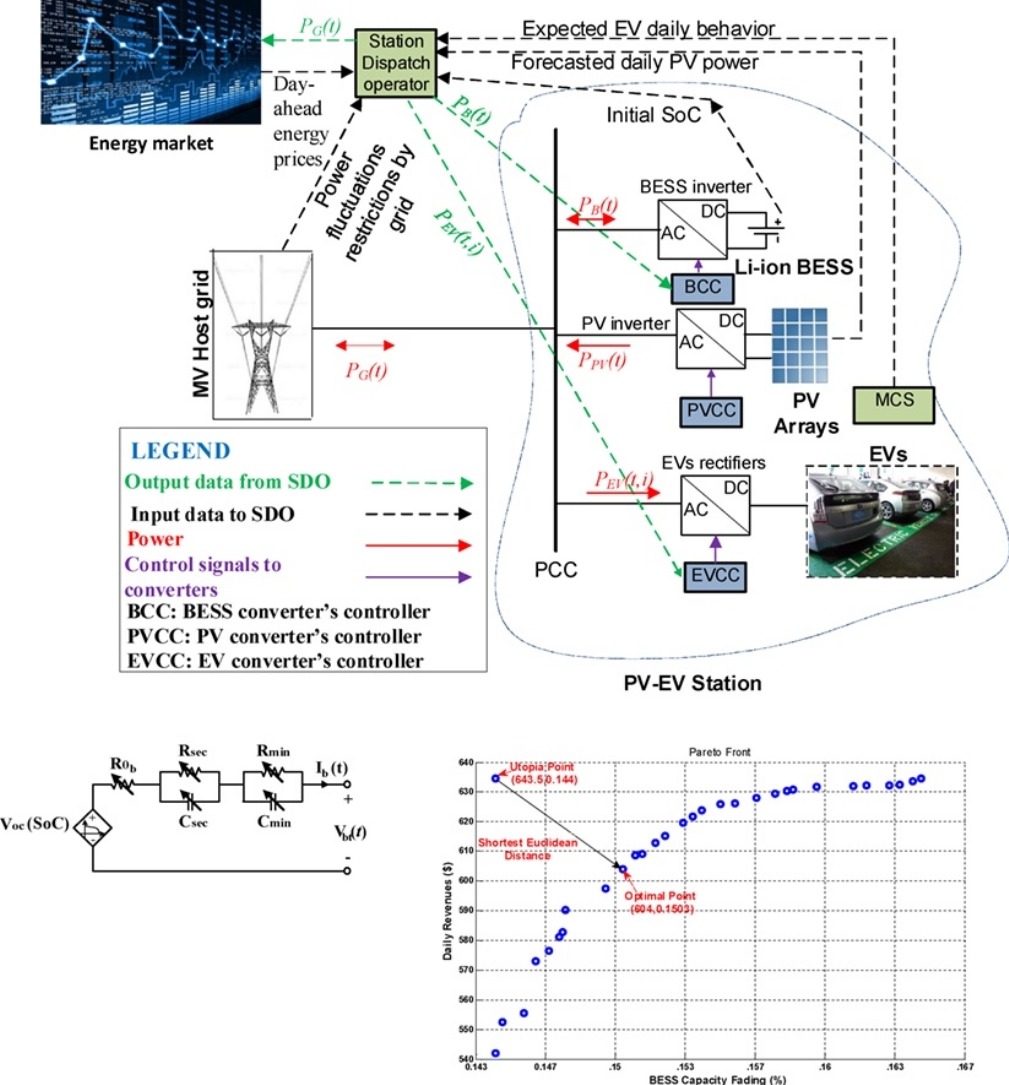The wide deployment of grid connected large scale photovoltaic (PV) systems and the rapid growth in the electric vehicle (EV) market opens the avenue for the PV based EV stations to participate in the energy as well as the EV arbitrage markets. This participation should comply with the utility restrictions with respect to power oscillations at the point of common coupling (PCC). Consequently, there is a need for battery energy storage system (BESS) to fulfill this task. This paper proposes a multi-objective optimization (MOO) methodology that aims at maximizing the revenues of the PV based EV (PV-EV) station while minimizing the BESS capacity fading simultaneously. The objectives are to be met under the power fluctuations restriction imposed by the hosting grid at the point of common coupling (PCC). The proposed methodology provides detailed modelling of the dynamics of the BESS as well as the EV parking garage behavior. The MOO problem is solved by the augmented ε-constrained (AUGMECON2). The results showed the effectiveness of the proposed methodology in achieving the aforementioned objectives. Furthermore, sensitivity analysis was performed to show the effect of neglecting one of the objectives on the other, and the effect of the power fluctuations limit constraint on the objectives of concern in this study. Moreover, the results showed the adverse effect of neglecting the battery’s detailed modelling on the battery’s lifetime. Additionally, the effect of uncertainties in the BESS’s internal parameters coefficients of both objectives was investigated.
Authors: Hassan H. Eldeeb, Samy Faddel, Osama A. Mohammed,

